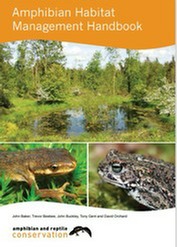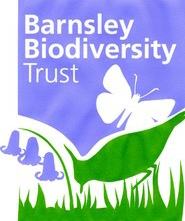

Biodiversity
Action
Plan
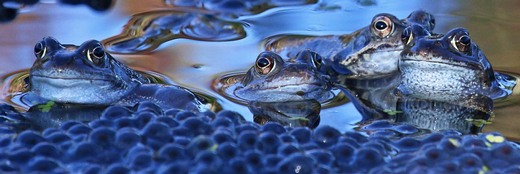
Amphibians conservation
Declines in numbers have been due to the loss of breeding ponds, reduction in breeding pond suitability and fragmentation of habitats. Habitat creation and enhanced habitat management can provide the right conditions to help the recovery of amphibian populations.
Reasons for decline and loss of amphibian populations
- Loss of breeding site ponds for development or by neglect. Agricultural intensification has resulted in farm ponds becoming redundant
- Pond suitability damaged by being stocked with fish (or wildfowl), which predate on both amphibian eggs and larvae.
- Ponds in agricultural land becoming polluted with fertilisers, effluent and pesticides.
- Habitats suitable for foraging and over-wintering are also lost through development or by excessive tidying of the environment.
- Habitat fragmentation and isolation of populations.
- Road mortality is a threat to toads which often migrate long distances in large numbers to breeding sites in the spring.
Amphibian & Reptile Conservation Trust
The National Amphibian and Reptile Recording Scheme provides general information as well as surveys: narrs.org.uk
Froglife
Great Crested Newt page links
Legal protection
The Great Crested Newt is protected under part of Section 9(1) of the Wildlife and Countryside Act 1981 (as amended) against intentional killing, injuring and taking from the wild. This strict legal protection does not apply for the other species of amphibian.
In addition to the Great Crested Newt, other amphibians are protected under Section 9(5) of the Wildlife and Countryside Act 1981 (as amended) against selling, offering or exposing for sale, or having in possession or transporting for purpose of sale.
There are also general controls relating to animal welfare.
As Section 41 species, Great Crested Newt and Common Toad need to be taken into consideration by any public body in managing their estate, fulfilling their duties and exercising their powers.
Common Toad is ‘Near Threatened’ with extinction in Great Britain.
Habitat requirements
As well as open water for breeding and early development as tadpoles, amphibians need adequate areas of foraging habitats with sufficiently large populations of invertebrate prey, damp areas for resting as well as shelter and suitable places for cover and hibernation. Great Crested Newts and Common Toads require deeper ponds than other amphibians.
Good Practice Habitat management for amphibians
- Maintain or create ponds with some sun, suitable depth and aquatic vegetation.
- Avoid introduction of fish to ponds used by amphibians or use of such ponds to support large numbers of wildfowl.
- Maintain or create habitat features for foraging or sheltering for example varied vegetation structure, damp areas, etc.
- Ensure there are places for hibernation.
- In gardens a pond, a bog garden, compost heaps, log piles, rockeries, and some areas with longer grass can benefit amphibians.
- Enable sites supporting amphibians to be linked by wildlife corridors.
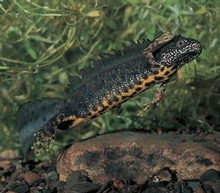
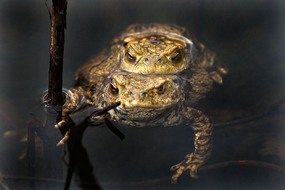
Amphibian conservation
